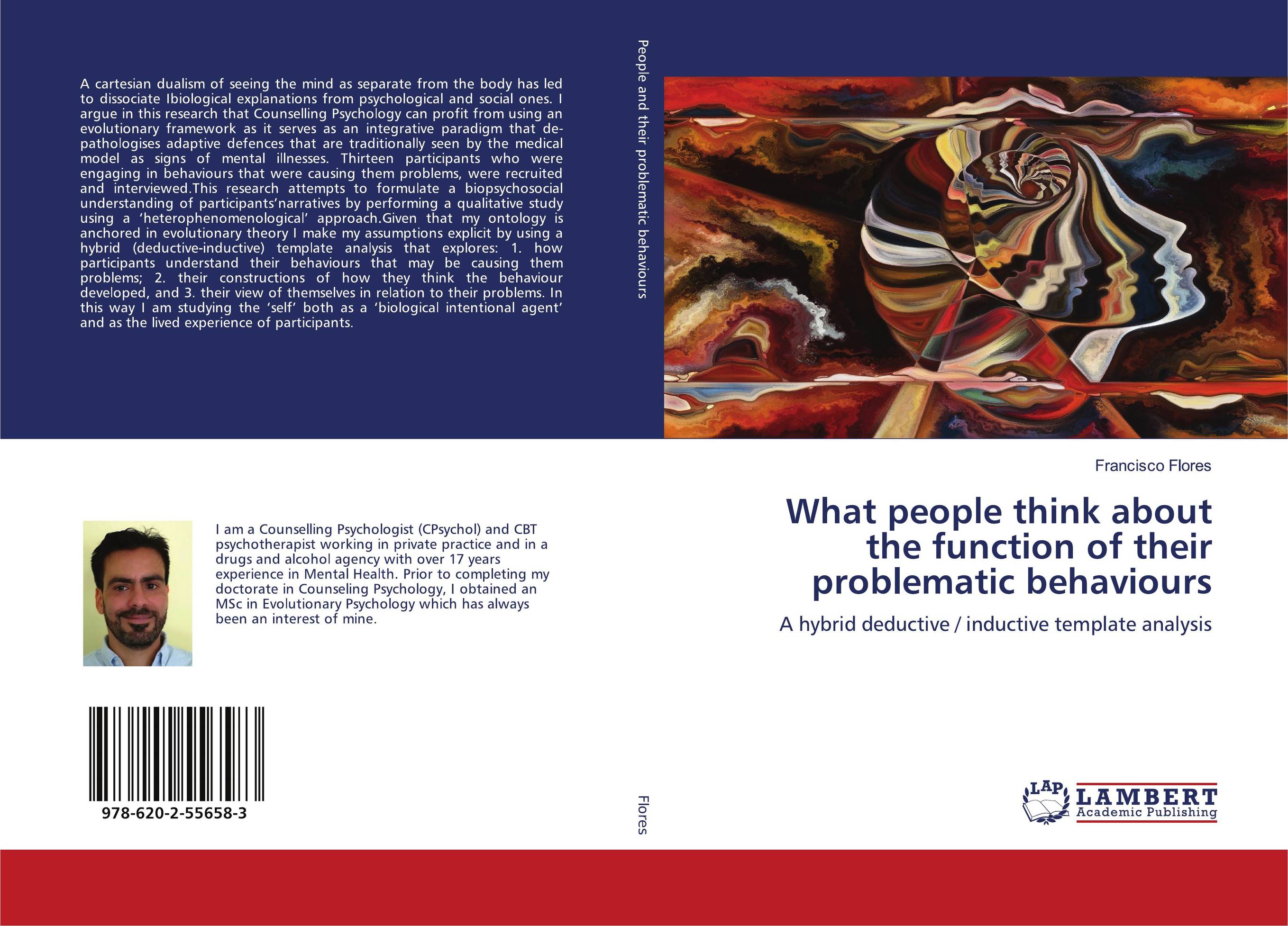| Поиск по каталогу |
|
(строгое соответствие)
|
- Профессиональная
- Научно-популярная
- Художественная
- Публицистика
- Детская
- Искусство
- Хобби, семья, дом
- Спорт
- Путеводители
- Блокноты, тетради, открытки
What people think about the function of their problematic behaviours. A hybrid deductive / inductive template analysis

В наличии
| Местонахождение: Алматы | Состояние экземпляра: новый |

Бумажная
версия
версия
Автор: Francisco Flores
ISBN: 9786202556583
Год издания: 2020
Формат книги: 60×90/16 (145×215 мм)
Количество страниц: 164
Издательство: LAP LAMBERT Academic Publishing
Цена: 42391 тг
Положить в корзину
| Способы доставки в город Алматы * комплектация (срок до отгрузки) не более 2 рабочих дней |
| Самовывоз из города Алматы (пункты самовывоза партнёра CDEK) |
| Курьерская доставка CDEK из города Москва |
| Доставка Почтой России из города Москва |
Аннотация: A cartesian dualism of seeing the mind as separate from the body has led to dissociate Ibiological explanations from psychological and social ones. I argue in this research that Counselling Psychology can profit from using an evolutionary framework as it serves as an integrative paradigm that de-pathologises adaptive defences that are traditionally seen by the medical model as signs of mental illnesses. Thirteen participants who were engaging in behaviours that were causing them problems, were recruited and interviewed.This research attempts to formulate a biopsychosocial understanding of participants’narratives by performing a qualitative study using a ‘heterophenomenological’ approach.Given that my ontology is anchored in evolutionary theory I make my assumptions explicit by using a hybrid (deductive-inductive) template analysis that explores: 1. how participants understand their behaviours that may be causing them problems; 2. their constructions of how they think the behaviour developed, and 3. their view of themselves in relation to their problems. In this way I am studying the ‘self’ both as a ‘biological intentional agent’ and as the lived experience of participants.
Ключевые слова: evolutionary psychology, Counselling, psychotherapy, Mentalisation, Life History Theory, counseling, Evolution



